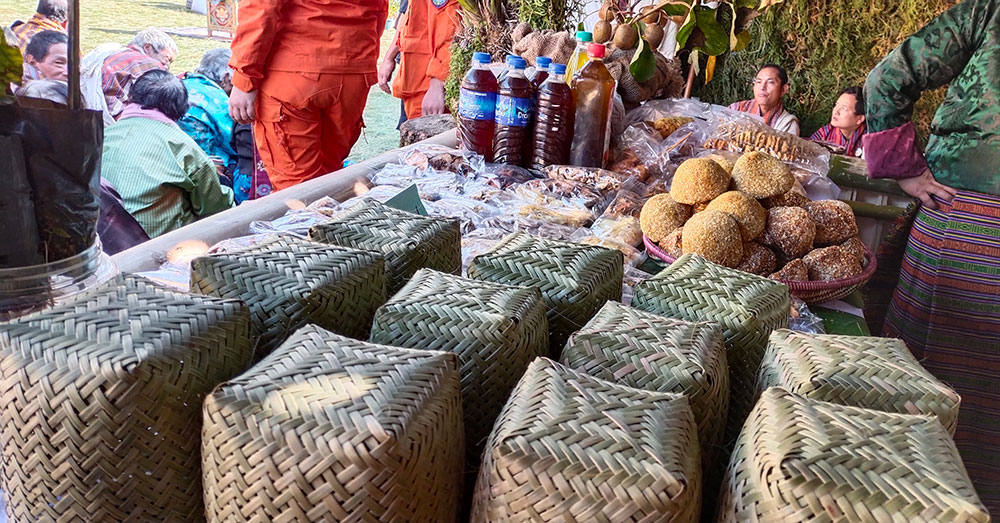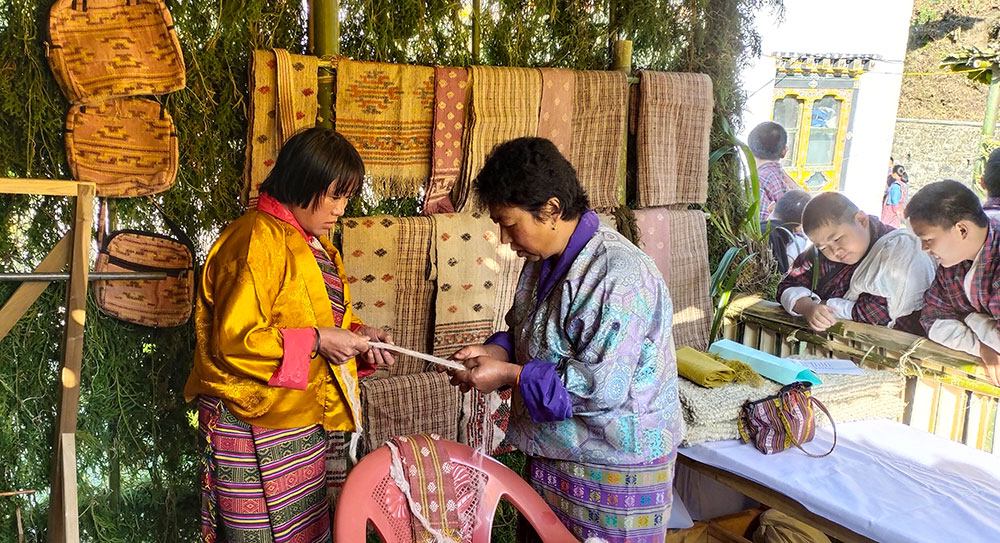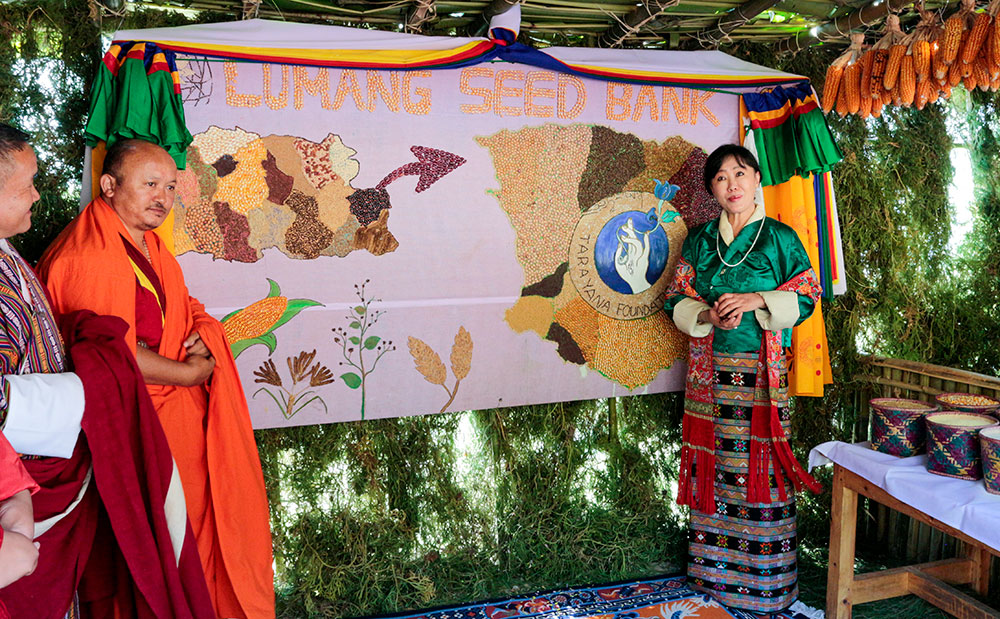Neten Dorji
Lumang– Her Majesty the Gyalyum, Dorji Wangmo Wangchuck laid the foundation stone for a Community Seed Bank in Lumang gewog, Trashigang yesterday.
The seed bank is expected to uplift the lives of people in rural areas of the gewog by generating income.
There are currently six different kinds of native cereals that could be classified as community-run seed banks across Lumang. Most farmers turn to the market for seeds with the hope that it will give them the maximum yield.
Lumang Gewog Agriculture Officer, Ugyen Tshomo, said they are working in collaboration with Tarayana Foundation to help lead farmers.
“In the past, farmers had to wait for a seed center in Paro to get the seeds. By the time the seeds reached them, it was too late to sow. And then the seeds expired,” she said.
She said every time they procured seeds and distributed them to farmers it incurred huge costs. “The establishment of the seed bank in Lumang can help farmers keep native cereals and generate income.”
It is a one-time investment and a sustainable way to grow crops and vegetables. “We want to make seeds available in the gewog and distribute them to farmers beyond this gewog,” the agriculture officer said.


Most of the native cereal seeds are in danger of extinction and with the establishment of seed banks, locals can conserve all nine varieties of crops including mustard, maize, finger millet, and barley.
Most of the farmers didn’t know that saving local varieties was important.
A farmer, Tshering Pelden said she understood the importance of native seeds and crops and decided to join the project.
“We have understood the importance of saving local varieties for future generations,” said Tshering Pelden. Among the crops, he takes particular pride in the cold-resistant variety of mustard.
Another farmer, Dorji Wangchuk said, that with support from Tarayana Foundation, most of the farmers are enthusiastic about doing farming like growing mustard and sugar cane.
“I will share what I had learned about a community seed bank that would be run by farmers with support from Tarayana,” Dorji Wangchuk said.
Most of the farmers learned that these varieties were not only tolerant to extreme weather and pests, the conservation of their genetic resources could also be used for the development of new varieties resistant to the effects of climate change.
Tarayana support
Lumang gewog has the highest poverty rate compared to the other 14 gewogs in Trashigang dzongkhag. Under the leadership of Her Majesty the Queen Mother, the Tarayana Foundation focuses on the development of shelters, water supply, electric fencing and distributed various machineries.
Tarayana Foundation distributed flour mills, solar driers, and groundnut and mustard machines, among others.
Lumang Gup Sangay Gyeltshen said the Tarayana project has benefited disadvantaged villagers of his gewog.
“About 175 households in the gewog do not have proper shelters like others,” said the gup. “The installation of several water tanks, electric fences, and other support benefited most of my people.”
During the event, Her Majesty said that the Tarayana Foundation started such projects to benefit the people.
“They would be unhappy and they could suffer from health issues if they didn’t have proper shelter,” Her Majesty said. “We have constructed around 3,000 homes in the country, but more homes still need to be built.”
Her Majesty said she was satisfied many families got proper shelter.
Her Majesty is on an eastern tour to inspect the progress of Tarayana Foundation projects.
The beneficiaries of various Tarayana projects exhibited their products ranging from textiles to farm produce.


